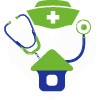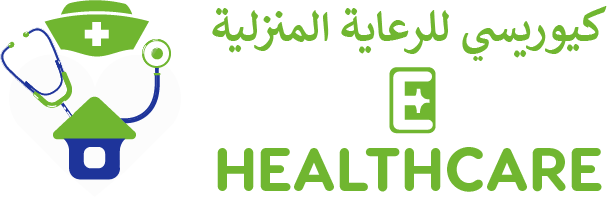Archives

A heart attack, also known as a myocardial infarction, is a life-threatening medical emergency that occurs when blood flow to a part of the heart muscle is blocked. This blockage is often caused by the rupture of a plaque in the coronary arteries, leading to reduced oxygen supply to the heart. Recognizing the symptoms of a heart attack and seeking immediate medical attention can be the difference between life and death. In this blog, we will discuss the 12 critical symptoms of a heart attack and their significance.
12 Critical Symptoms of Heart Attack
Chest Pain or Discomfort:
The most common symptom of a heart attack is chest pain or discomfort. The sensation is often described as a heavy, squeezing, or crushing feeling in the chest. The pain may also radiate to the arms, neck, jaw, back, or stomach. If you experience chest pain that lasts for more than a few minutes, don’t ignore it; seek medical help immediately.Shortness of Breath:
As the heart struggles to pump effectively due to reduced blood flow, the body may not receive enough oxygen. This can lead to shortness of breath or difficulty breathing, which can occur with or without chest pain. If you find yourself gasping for breath, especially during physical activity or at rest, consider it a warning sign.Sweating and Nausea:
Heart attacks can trigger excessive sweating, even in cool environments. Feeling nauseous or vomiting may also accompany a heart attack. Pay attention to these symptoms, especially when they are accompanied by other warning signs.Rapid or Irregular Heartbeat:
During a heart attack, the heart may respond to the lack of oxygen by beating faster than usual or developing irregular rhythms. If you notice palpitations or a racing heart without any obvious cause, it’s essential to have it checked out by a healthcare professional.Anxiety and Fear:
Experiencing a heart attack can be a terrifying event. Many individuals report feelings of anxiety, fear, or impending doom during the episode. Trust your instincts and don’t dismiss these emotional symptoms.Pain in the Upper Body:
Apart from chest pain, a heart attack can cause discomfort in other parts of the upper body, such as the arms, shoulders, back, neck, or jaw. This pain can be sharp or mild but is often persistent.Feeling Lightheaded or Dizzy:
A heart attack can cause a sudden drop in blood pressure, leading to feelings of lightheadedness or dizziness. If you feel faint or have difficulty maintaining balance, seek medical attention right away.Fatigue and Weakness:
Unexplained fatigue and weakness, even without exertion, can be a sign of reduced blood flow to the heart muscle. Don’t ignore persistent fatigue, as it may be a symptom of an underlying heart problem.Cold Sweats:
Cold, clammy skin or breaking into a cold sweat could indicate a heart attack. If you experience this symptom along with other warning signs, don’t hesitate to call for help.Indigestion or Heartburn:
Sometimes, a heart attack can be mistaken for indigestion or heartburn, especially in women. If antacids or other remedies don’t relieve your discomfort, consider the possibility of a heart attack and seek medical assistance.Pain in the Stomach or Abdomen:
In some cases, a heart attack can cause abdominal pain, often mistaken for gastrointestinal issues. Persistent or severe stomach pain should be evaluated by a healthcare professional.Unexplained Flu-like Symptoms:
A heart attack can present with flu-like symptoms, including fever, chills, and body aches. If these symptoms are accompanied by any of the other warning signs, take them seriously and seek immediate medical attention.In Case of Doubt, Consider Teleconsultation with a Doctor for a Quick Assessment
Recognizing the symptoms of a heart attack is crucial, and seeking immediate medical attention is of utmost importance. However, sometimes people may be unsure whether their symptoms are severe enough to warrant a trip to the emergency room, especially if they have doubts or concerns.
In such situations, teleconsultation with a doctor can be an invaluable resource. Teleconsultation, also known as telemedicine or virtual doctor visits, allows individuals to connect with healthcare professionals remotely using video calls, phone calls, or online platforms. Many healthcare providers offer teleconsultation services, enabling patients to discuss their symptoms, medical history, and concerns with a qualified medical professional in real-time.

Here are some benefits of considering teleconsultation in case of doubt during a potential heart attack:
Rapid Assessment:
Teleconsultations can provide a rapid assessment of your symptoms, allowing a healthcare professional to determine whether your situation requires immediate attention or if it may be related to a different condition.Convenience:
Teleconsultations offer the convenience of seeking medical advice from the comfort of your home or any location with an internet or phone connection. This can be particularly helpful if you are experiencing symptoms late at night or in a remote area.Reduced Wait Times:
In some cases, visiting an emergency room during busy hours may involve considerable waiting times. Teleconsultations can help you skip the waiting room and connect with a doctor promptly.Peace of Mind
If you are unsure whether your symptoms are serious, talking to a healthcare professional can provide reassurance and peace of mind. It’s always better to err on the side of caution when it comes to potential heart issues.
A heart attack is a serious medical emergency that requires immediate attention. If you experience any of the mentioned symptoms, especially chest pain, shortness of breath, and sweating, do not delay seeking help. Early intervention can significantly improve the outcome and increase the chances of a full recovery. Remember, when it comes to matters of the heart, it’s always better to be safe than sorry.
Facebook
Twitter
LinkedIn
Pinterest
Other Services
Thyroid test at home
Error: Contact form not found.
You might also like
The Diagnostic Value of CT Scans
Lab test at Home Food Intolerance Doctor at Home Physio
August 17, 2024
The Vital Role of Vaccinations: Essential for All Ages
Lab test at Home Food Intolerance Doctor at Home Physio
August 17, 2024
Breastfeeding Awareness Week: Simple Tips for New Moms
Lab test at Home Food Intolerance Doctor at Home Physio
August 3, 2024
July 27, 2024
July 20, 2024

